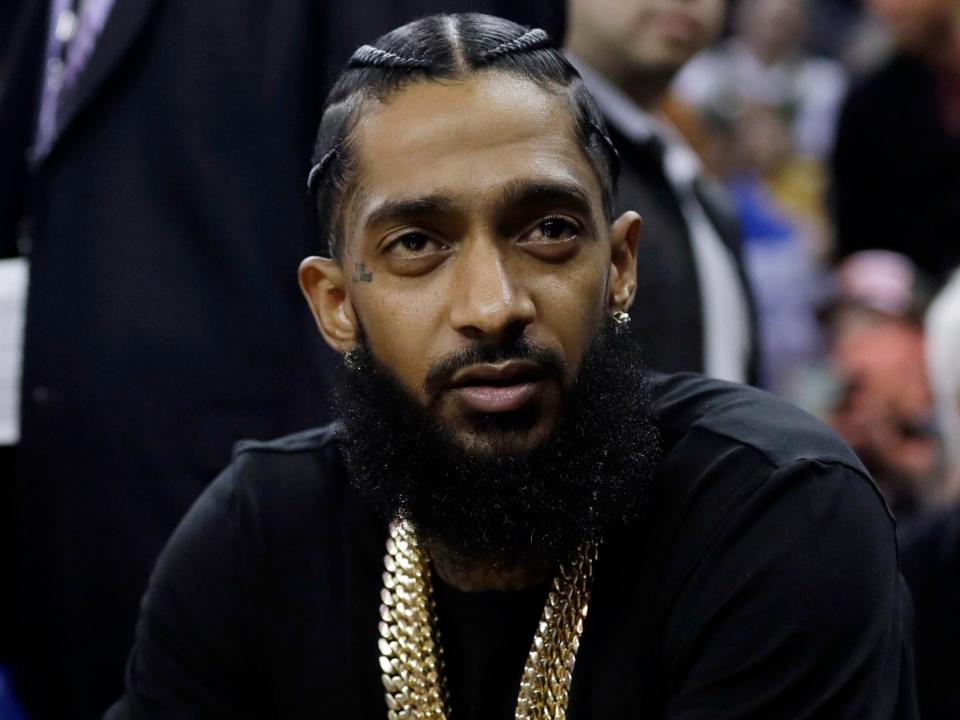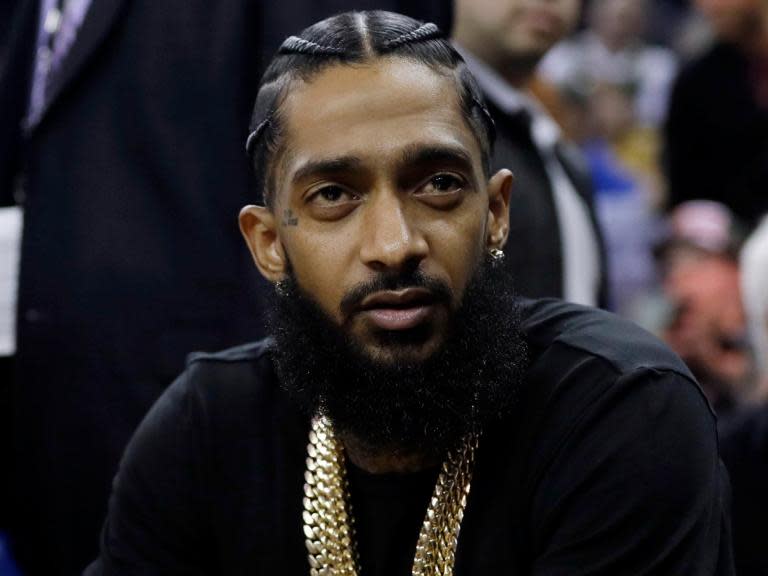Nipsey Hussle was an Eritrean diaspora kid, just like me – here's what his death means to us
Growing up in London and meeting new people meant I was often confronted with the same question: “Where are you from?” To which I would typically answer: “Where am I from, or where am I from from?”. After hearing my answer, people would look at me with confusion before asking, “What’s Eritrea?”, in reference to tiny country in the Horn of Africa that my family hail from, nestled above its former occupier Ethiopia and below recently reformed Sudan.
As small as Eritrea may be (population: 5 million) and as many political difficulties as it may face today, the diaspora spans major US cities such as LA, Seattle and Washington DC. The diaspora community holds festivals, usually aimed at young people, to promote cultural awareness – one of which recently murdered US rapper Nipsey Hussle attended in Washington DC in 2018. As a child, these events were an opportunity to interact with my culture in all shapes and forms, as well as meet other young Eritreans in London. Although I wasn’t an avid Nipsey fan, knowing that there was a rapper of Eritrean heritage being nominated for Grammys was a source of pride for our us. Here was a rapper proud of his heritage – the same heritage as us – who had undoubtedly made some bad decisions but came back from it all, living the American dream on his own terms.
On Monday 1 April, I, like many others, woke up to the news that the rapper, businessman and philanthropist born Ermias Asghedom had tragically been shot dead outside his store in LA. In a matter of days, this west coast rapper became a symbol of hope, vision and hard work – just like Eritrea when it became an independent country in 1993, winning its war against Ethiopia without a proper army or major financial backing, something which is a great source of national pride.
Watching a recording of his televised funeral at the Staples Center in Los Angeles, an event attended by thousands, I laughed and cried at his friends and family’s anecdotes. What struck me most, however, were home recordings from his Eritrean father that documented Nipsey’s first trip back to “the motherland” in 2004.
On a plane, the then-18-year-old is asked by his father behind the camera what he expects Eritrea to be like. To which Nipsey wryly replies “hot”. The rest of the montage shows his father speaking to him in Tigrinya, and Nipsey replying in his south-central drawl, littered with west coast slang, while sitting in his grandmother’s house, thousands of miles from his beloved Crenshaw and Slauson in LA.
His father records he and older brother Samiel as they sightsee and play with local children, the montage ending with Ermias in the back seat of a care with headphones on (presumably on his way back to the US) and his father humming along to a famous song by Eritrean singer Yemane Barya.
In interviews, Nipsey spoke of the significance of this trip, crediting it as a turning point in his life. One that gave rise to his philosophy of self-reliance while demonstrating the importance of a close-knit family life.
The first journey “back” to a place you've never been to is a rite of passage for many diaspora children, no matter where in the world your immigrant parents come from. The land that your parents often speak of with romantic idealism can confound those visiting from the UK or the US. The cultural shock and language barrier struck me on my first visit to Eritrea at the age of nine.
Watching Nipsey answer in English to conversations begun in Tigrinya reminded me of moments with my now-passed great grandmother, who spoke as much English as I spoke Tigrinya – none. Coming from a culture where everybody was so busy with work and “life” that family dinner was a rarity, sharing a communal plate of food every day and being around so many people all the time was a shock to the system. I witnessed hardship, but what changed my life was seeing just how people approached this hardship. With optimism, ingenuity and hard work.
The first trip brings with it an awareness and responsibility, opening up a world of possibilities. It is equally inspiring as it is daunting to assume a position of ambassador, like Nipsey did during his life, educating people on what was your parents’ land but has now also become yours.
As much as Nipsey the rapper was moulded by west coast hip-hop culture, Nipsey the man was a product of his Eritrean heritage, reconciling what may seem at first to be two very different ways of life while bringing pride and strength to an underrepresented community.

 Yahoo News
Yahoo News 

